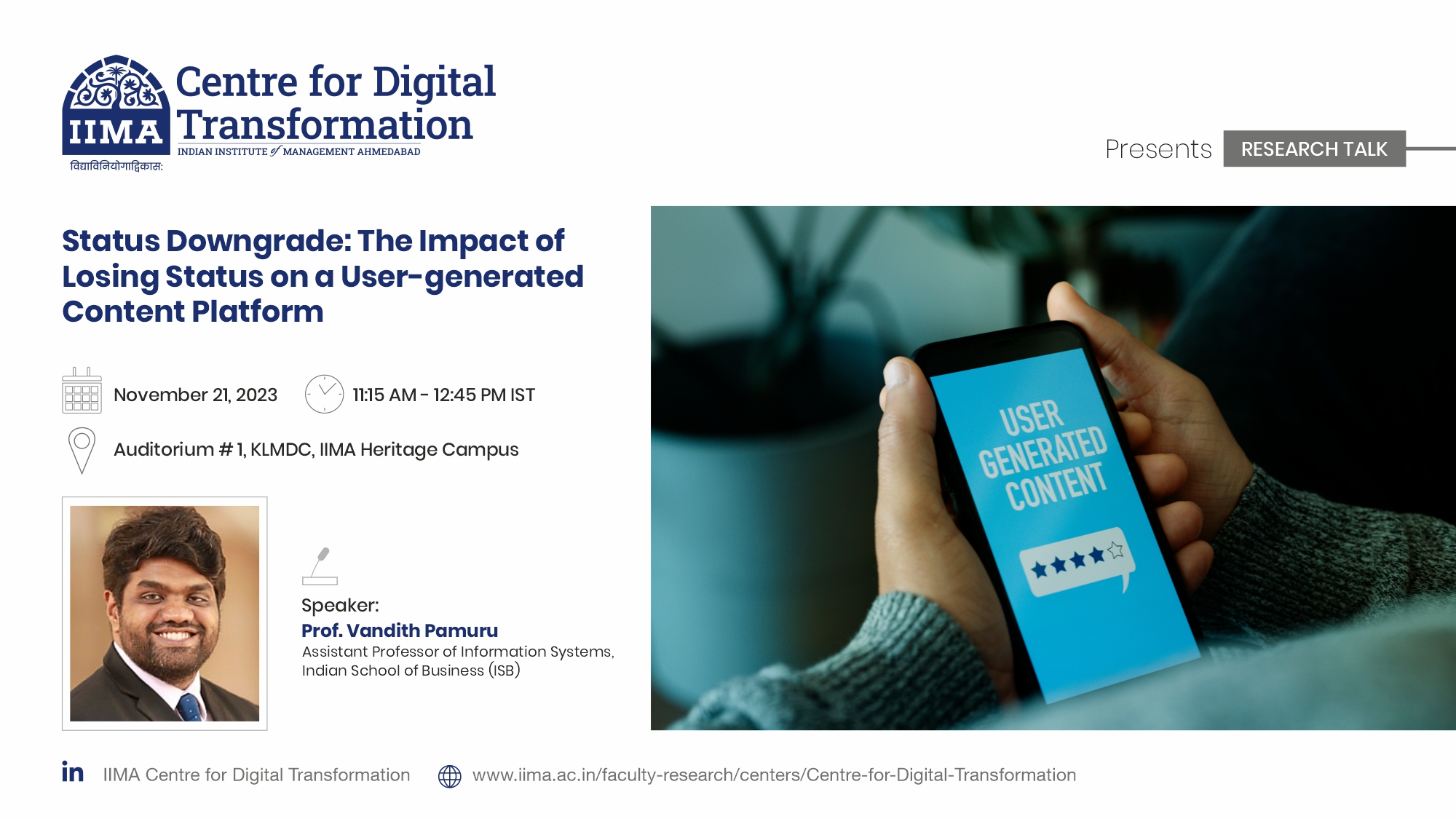
21/11/2023 - 21/11/2023

Abstract:
Non-financial incentives such as badges, ranks, and status are often used to encourage user participation on online platforms. This study focuses on the effect of one such incentive, “status,” in the context of a third-party restaurant-review platform. In contrast to previous research that has mainly focused on the effects of such incentives on subsequent contributions from rewarded users, we explore how the intrinsic and perceived quality of content generated by users is impacted after users lose their status. Using natural language processing (NLP) techniques to extract quality metrics from online reviews in our dataset, we exploit a quasi-experimental setting and demonstrate that even though the intrinsic quality of reviews significantly decreases after a reviewer is demoted by a platform, consumers on the platform nonetheless perceive these reviews as disproportionately useful. We draw on inequity theory and elaboration likelihood model to theoretically support our empirical results, as well as conduct mechanism analyses to rule out alternative explanations. Furthermore, we find that temporal associations with a platform or with an elevated status do not moderate the effect of status loss on the intrinsic and perceived quality of reviews written post-demotion. The implications of our findings are significant for platform managers who manage the design of status-driven recognition systems and must determine how changes in status should be displayed on the platform.
About the Speaker:
Professor Vandith Pamuru is an Assistant Professor of Information Systems at the Indian School of Business (ISB). His primary research interests are in the areas of user engagement on online platforms and incentives design, in the context of emerging technologies. His work has been presented in multiple conferences including ICIS, WISE, SCECR, CIST, POMS, DSI, and WITS, where he also received Best Paper runner-up award. He received his PhD in Management Information Systems & Masters in Economics from Purdue University, and his undergraduate in Information Systems from Birla Institute of Technology & Science (BITS) – Pilani. Prior to his PhD, he has extensive industry experience in user experience design and product management.
